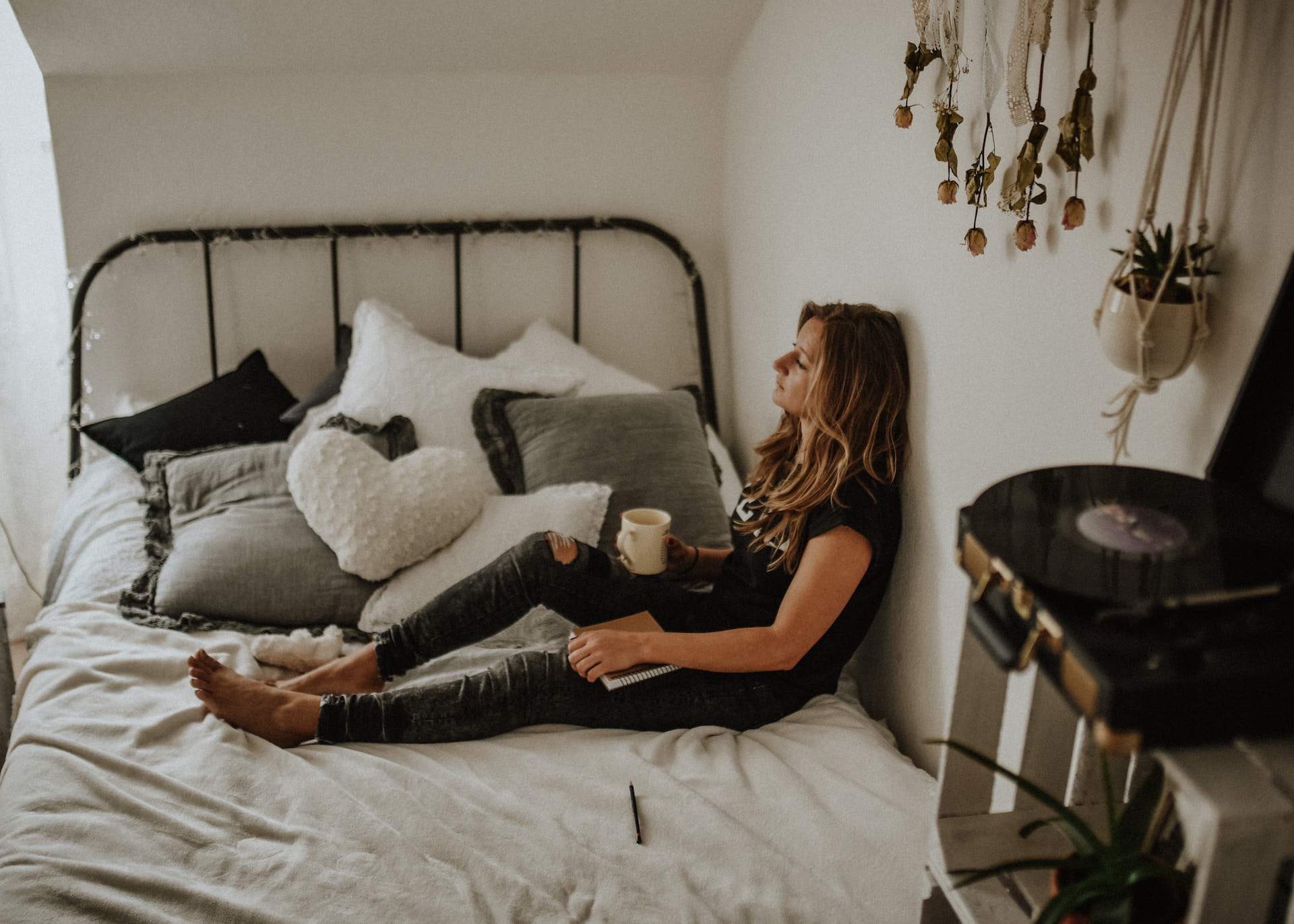10 Steps First Time Renters Should Take

Renting your first apartment ever is a huge milestone and step that might cause some stress, and that’s not okay. If you decide to leave your home for college but are not going to live on campus, you have not left that many options. Renting an apartment is one of them. But as easy as it sounds, there are a few things you need to know about the whole process and the steps you will have to take before you can call your new apartment home. Let’s take a look at what first time apartment renters should do before they move in.
1. Determine Your Budget
Budget and location are two key elements that affect an apartment’s choice. The first thing you should take care of is setting a realistic budget before beginning the apartment search. It might take you some time to calculate the sum that you will be able to provide. Take into account that monthly expenses, including rent, utilities, and groceries, will probably take the most of your monthly income but can’t be omitted and might require you to save on things like dining out, shopping, fun, etc.
If you are going to split the rent cost with a roommate, you need to decide the budget together. Or you can search for someone who is already renting and has a spare room. Anyways, being able to pay rent even when your income slightly changes is essential, so make sure you have some savings or set the budget limit lower just in case.
2. Define Your Priorities and Needs
Everyone is different, and everyone has different priorities when it comes to housing. Some people don’t mind commuting, while others would rather pay more just to omit public transport. That’s why it’s important to make a list of must-haves and preferences in the apartment. That would really save you time and allow you to focus on the options that you will enjoy.
Factors like location, amenities, and proximity to campus are surely important and might play a huge role. But other crucial things might also include:
- The proximity to parks and recreation zones for those who can’t imagine their life without an evening walk
- Laundromats/washing machine availability
- The neighborhood, criminal situation, safety measures, etc
- The proximity to gyms, art studios, and hobby centers, depending on the interests
- The quality of furniture, materials, and building state.
Be sure to include in your list all of the things that you find important, and focus on the options that fit your list first.
3. Start Your Apartment Search
An apartment search is a time-consuming process where it is hard to cut corners. All you need to do is to check online platforms, rental websites, and student housing boards as frequently as possible, as some housing options become unavailable in the matter of hours.
Be sure to apply the criteria you have previously defined to narrow the search. Call or message the listing owner as soon as possible to register for the visit. Provide the information about yourself, be polite, and don’t forget to set a reminder for the preview or put it in your calendar. You want to be on time when visiting the location.
4. Visit Apartments and Ask Questions
As it was said earlier, scheduling apartments visit is crucial in order to give a good first impression, not miss a good apartment option, and organize your daily routine. Don’t put more stress on yourself – it’s better to plan your day ahead and schedule all the visits.
Write down questions to ask landlords or property managers about lease terms, utilities, and maintenance. It’s better to do so just to be double sure you don’t forget anything, especially if you are anxious about the process. You might want to also ask about the following:
- Local amenities
- Pest control measures in the building
- Internet connection (as it is crucial for a student)
- Noise levels
- Heating and cooling
- Mail and deliveries
These are the most common things that might cause trouble – so the ones that you should be informed about.
5. Check Lease Agreements
When you rent your first apartment, you have to deal for the first time with the components of a standard lease agreement: rent, lease duration, security deposit, etc. All the terms should be mentioned in the agreement and have strict and understandable guidelines. For example, if pets are allowed or eviction conditions.
If you find any point in the agreement that you don’t understand or are not comfortable with, be sure to talk about it with the landlord or manager/realtor. It’s always better to solve all the issues or discuss misunderstandings before signing anything. Don’t rush – carefully read and understand the terms before signing.
While visiting and talking to the landlord or manager, be sure to discuss rent increases, maintenance policies, and any potential modifications that might occur in the future. They should also be covered by the agreement.
6. Inspect the Apartment
When you make your choice whether the apartment suits your needs or not, there are a few things that you should pay attention to. Not only should the apartment look nice and be spacious enough, but it also should be checked for common issues, for example:
- Leaks or drainage issues: flush the toilet, check the faucets, water pressure, and temperature.
- Mold or damage, especially in the kitchen and bathroom.
- Security issues: check the locks, alarms, smoke detectors, etc.
- Smells, noises, stains, etc.
- Appliances and electrical outlets.
Be sure to check all the areas yourself, even if you find it time-consuming.
7. Plan Additional Costs
While paying rent might be a huge deal itself, don’t forget about potential additional costs like utilities, internet, and renters insurance. Before you sign an agreement, they should be discussed and written down, as well as other terms. Sometimes it happens so that the rent itself is pretty low while other costs are high or vice versa. Check and calculate various options to find the best for you.
You will also need to include these expenses in your budget planning. Always make sure to put the needed sum aside right after you receive your paycheck or money transfer, as these are the expenses that are prioritized and must be paid first.
8. Understand Security Deposits
A security deposit is a sum of money that a tenant pays to a landlord before they move in and which provides financial protection in case of property damage or missed payment. If all the terms are met when the agreement ends, the deposit can be returned to the tenant.
It’s always better to document the apartment’s condition during move-in to ensure the return of the deposit. Any damage should be listed so that you and your landlord are informed about the state of the apartment when you move in. Any additional damage might be viewed as the reason for the landlord to keep the security deposit and thus fix the damage.
9. Set Up Utilities and Services
The process of setting up utilities like electricity, water, and internet might take some time, so it’s always better to start the process as soon as possible. In order to do it right, it’s crucial to reach out to utility companies in advance to ensure a smooth transition.
You might want to change the internet provider or security company – always discuss it beforehand with the property manager as sometimes it might not be allowed. However, most of the time, all you need to do is to turn to a building superintendent or building management company to do the needed work.
You should also turn to your delivery company in case you need to change the address for your packages or monthly deliveries.
10. Know Your Tenant Rights
Everyone renting an apartment should know their basic tenant rights and responsibilities. Such as:
- Right to privacy – no one can visit your rented place without notice.
- Right to repairs – you can always request repair works to be done when needed.
- Right to habitable premises – you have the right to live in a safe environment.
- Responsibility to pay rent regularly
- Responsibility to use the property properly and minimize disturbances
- Responsibility to cooperate during repairs or inspections, etc.
Be aware of your rights for a fair and comfortable living situation. You can talk to your landlord or even end the contract if you feel that your rights are violated.
Conclusion
Everything that happens for the first time in your life might be a little bit scary and stressful. However, if you use our easy guide for first time renters, you will see that there is nothing to be worried about. We are sure that you will be able to find a perfect apartment; just always be sure to check the agreement terms carefully before you sign anything.
Sometimes no matter what you do, there might be an unpleasant surprise about the apartment. Well, it is life, and none of us can perfectly consider every possible issue. We hope you will not face any difficulty picking the housing option that suits your needs. Wishing you the best of luck renting your first apartment!





